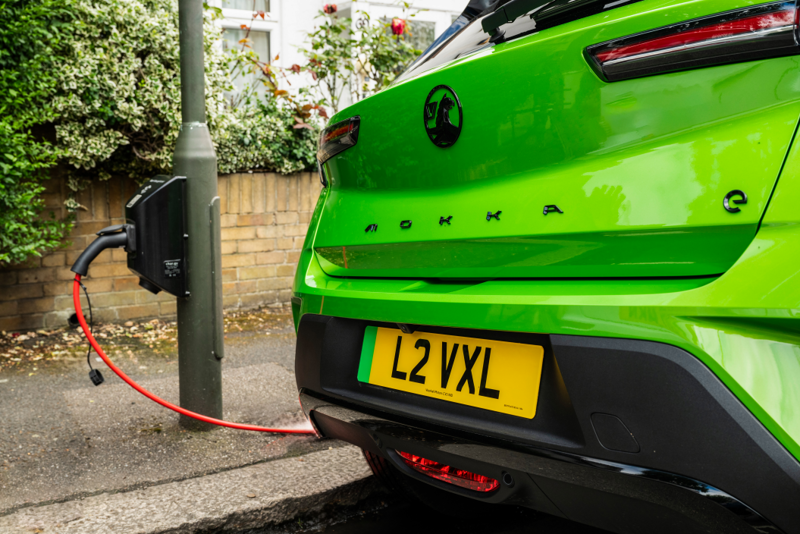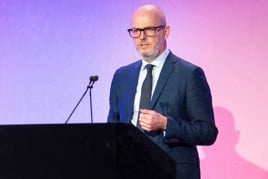Transport Secretary Heidi Alexander has today launched a consultation asking for industry views on the Government’s restoration of the 2030 petrol and diesel new car ban.
Elements of the consultation include gathering views on which full hybrid and plug-in hybrids could be sold still alongside zero emission vehicles, and what approach should be taken for vans and low volume OEMs.
Plus its second part seeks input on technical measures to amend the ZEV Mandate plus views on whether the current mandate’s flexibilities, such as borrowing credits from future targets and buying credits from other manufacturers, are sufficient.
Transport Secretary Heidi Alexander said: “Employing 152,000 people and adding £19 billion to our economy, the UK’s automotive industry is a huge asset to our nation — and the transition to electric is an unprecedented opportunity to attract investment, harness British innovation, and deliver growth for generations to come.
“Yet over the last few years, our automotive industry has been stifled by a lack of certainty and direction. This Government will change that.”
Numerous car brands have been critical of the ZEV Mandate’s structure – a 22% ZEV sales mix this year and 28% in 2025 – as the take-up of electric cars by private motorists has remained lower than expected, leading some carmakers to apply heavy retail discounts or to demand that leasing and rental companies include a large proportion of EV orders to secure the cars they need. Some OEMs have changed strategy due to a global slowdown – Volvo and Lotus, which had previously promised to go EV-exclusive well ahead of the deadline, have backtracked and will now continue to produce hybrids.
Stellantis has recently decided to close its van plant in Luton, which had been scheduled to be refitted for EV production from next year.
Business and Trade Secretary Jonathan Reynolds said there is no route to net zero without backing British industries and workers, and the country must make sure decarbonisation creates jobs and opportunities.
“We are steadfast in our mission to help our world-leading automotive industry thrive, and this consultation will look at how we can support manufacturers, investors, and the wider industry to reach their targets,” he said.
He said the Government is backing the auto sector with £2 billion to support domestic manufacturers to transition to zero emission vehicles and over £300 million to drive consumer uptake.
 A Government spokesperson said the original 2030 ICE car ban had been broadly accepted by carmakers until last year when the then prime minister Rishi Sunak told the public he would put it back to 2035, despite not adapting the OEMs’ actual targets.
A Government spokesperson said the original 2030 ICE car ban had been broadly accepted by carmakers until last year when the then prime minister Rishi Sunak told the public he would put it back to 2035, despite not adapting the OEMs’ actual targets.
This consultation is focused on how, not if, the UK reaches the 2030 target. Originally announced by Boris Johnson in 2020, it set the target for 80% of new car sales in 2030 to be zero emission vehicles, such as electric cars, with the remaining 20% being hybrids. Then from 2035 all new cars sold must be zero emission vehicles.
The UK government has also unveiled a series of measures today to continue to improve charging infrastructure and tackle barriers to EV take-up and drive forward this transition.
These include a separate consultation on whether it can reduce barriers to roll out more zero emission vans, and changes to planning and permits legislation to enable chargepoint installers to work more easily.
Industry reactions
At the British Vehicle Rental and Leasing Association (BVRLA), incoming chief executive Toby Poston said the Government’s announcement brings “some festive cheer” to an automotive industry which has had a tough year funding huge discounts on new cars and taking a massive hit on used vehicle depreciation.
He warned that the UK’s ambitions “are at major risk” without collaboration from an open-minded government.
 Poston said: “This consultation gives us a valuable opportunity to realign the aims of the mandate with the realities being seen in the market today.
Poston said: “This consultation gives us a valuable opportunity to realign the aims of the mandate with the realities being seen in the market today.
“Today’s announcement provides some festive cheer with the prospect of more certainty on hybrid vehicles, potential extra-flexibilities for OEMs struggling to hit the targets and much-needed action on charging infrastructure installation and ZEV van pain-points.
“The current Phase-out and ZEV Mandate targets are at major risk unless the government delivers more support and incentives to drive demand. Money is tight, but the Labour Government, which inherited these plans, is open to ideas.”
Mike Hawes, chief executive of the Society of Motor Manufacturers and Traders, welcomed the Government’s review but called for “an urgent resolution” to help the industry determine its strategies.
 Hawes said the end of sale date for cars powered solely by petrol or diesel, and the Zero Emission Vehicle Mandate, are both critical issues for an industry that is facing significant challenges globally as it tries to decarbonise ahead of natural market demand.
Hawes said the end of sale date for cars powered solely by petrol or diesel, and the Zero Emission Vehicle Mandate, are both critical issues for an industry that is facing significant challenges globally as it tries to decarbonise ahead of natural market demand.
“Aside from the billions invested in new technologies and products, it has cost manufacturers in excess of £4 billion in discounting in the UK this year alone,” he said.
“This is unsustainable and, with the 2025 market looking under even greater pressure, it is imperative we get an urgent resolution, with a clear intent to adapt the regulation to support delivery, backed by bold incentives to stimulate demand. Such action will support not only the industry, but also deliver for the economy, consumer, government and the environment.”

